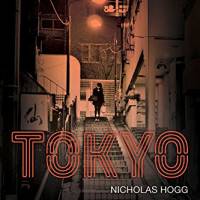So-called foreigner-in-Japan novels can set cliche alarm bells ringing, so when a book as exciting and original as Nicholas Hogg's "Tokyo" comes along, it takes a moment to recalibrate expectations. And it's not the last time Hogg wrong-foots his readers — this slow-boil thriller is designed to unsettle.
Tokyo, by Nicholas Hogg
208 pages.
Cargo, Fiction.
Ben Monroe is a British psychologist at the University of Tokyo. He convinces his estranged daughter, Mazzy, to spend a semester at an international school in Tokyo. Dripping in teen-girl sarcasm, she flies out and quickly settles into a life of karaoke, multicultural friends and shopping excursions to Harajuku. On the surface "Tokyo" is a middle-class family drama, with its first-world problems set against a post-3/11 Tokyo, but bubbling underneath is a thick reservoir of noir.
On the flight out, Mazzy makes small talk with Koji, a passenger sitting next to her who is a cult survivor. Koji takes this brief contact as an indication he should recenter his life around this woman and begins stalking her. At the same time, Ben searches the seedier side of Tokyo for a hostess he once loved. An intersection is inevitable, but Hogg blind sides the reader time and again. When the climax finally arrives, it is as unexpected as it is disturbing. The ending — no spoilers — is initially confusing and it's a testament to Hogg's storytelling that such an audacious series of twists hangs together.
Written in staccato sentences, stripped down to bare meaning and raw emotion, his invocation of modern Japan is refreshingly well-observed. Like David Mitchell and David Peace before him, he portrays the multilayered nature of Japanese society that long-term residents will recognize perfectly. If only all "foreigner in Japan" novels were this good.



